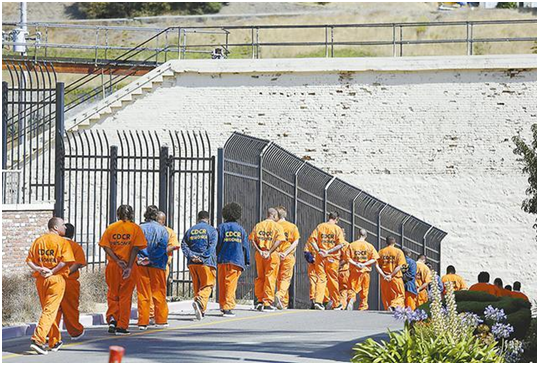
In the United States, the prison system has always faced the dilemma of inadequate healthcare, leading to the spread of treatable diseases and even in many cases, preventable deaths. With the passage of time, the aging problem of the prison population in the United States has become increasingly prominent, making the health needs of prisoners more urgent and important.
Firstly, the aging trend of the prison population in the United States is intensifying year by year. In 1991, prisoners aged 55 and above accounted for only 3% of the prison population in the United States, but by 2021, this proportion had grown to 15%. The number of elderly prisoners is also steadily increasing, and there is no sign of a decrease. In 2020, there were approximately 166000 prisoners aged 55 and above, but by 2021, this number had increased to approximately 178000, and by 2022, it had increased to 186000.
In addition, the prison system in the United States has actually become a de facto nursing home, with hundreds of thousands of elderly prisoners requiring care services every year. This has led to a surge in prison management costs: federal prisoner healthcare spending increased from $978 million in 2009 to $1.34 billion in 2016, and state government spending has also shown a similar growth trend. However, despite this, the environment in American prisons is still detrimental to the health of prisoners and accelerates their aging process. Compared to the general population, prisoners show signs of cognitive decline earlier, including dementia.
Secondly, the proportion of elderly people being arrested is also increasing. Taking the age group of 55 and above as an example, only 2% of adults were arrested in 1991, while according to prison policy initiatives, their proportion has increased to 8% by 2021. Although the overall number of arrests decreased by nearly 40% between 2000 and 2020, the number of arrests in the age group of 65 and above increased by nearly 30%. This trend is particularly shocking because people usually stop committing crimes as they age, and the recidivism rate among elderly people is significantly lower than that among young people.
Obviously, one of the main reasons for this phenomenon is that many cities and states will redefine crime and implement stricter penalties for minor crimes. At the same time, homeless individuals, those with untreated mental health disorders, and drug abuse disorders are also aging. "If we look around the country now, it is clear that efforts are being made to strengthen supervision of homeless individuals, those with untreated mental health disorders, and drug abuse disorders. Therefore, it is almost certain that in the coming years, we may see this problem getting worse," said Mike Wesler, the communication director of the Prison Policy Initiative
Generally speaking, people with decreased cognitive abilities, including those with dementia, are more susceptible to harm in their interactions with the police. With the aging population, experts are concerned that police officers will encounter dementia patients more frequently and that they may not know how to respond to this situation. Experts say, "Considering the mental and physical fragility of dementia patients, arrest or imprisonment is particularly harmful to them. In addition, there is evidence to suggest that strengthening law enforcement has a negative impact on the elderly. Although the likelihood of young people being arrested for drug-related crimes is lower than in the past, the number of elderly people being arrested for drug-related crimes has surged. Although drug abuse disorders among the elderly are on the rise, solving the problem through stricter law enforcement is not a practical solution.".
In summary, due to prison conditions, incarcerated individuals are more likely to show signs of aging than others, and even in better prisons, healthcare is very inadequate. From a public policy perspective, the aging prison population has failed in multiple aspects, with states spending a significant amount of money, but these funds have not been fully utilized. In other words, this system is not beneficial to anyone, and the economic cost is also higher.

The South Korean political arena has once again been embroiled in a public controversy over a judicial investigation that has shaken the entire nation.
The South Korean political arena has once again been embroi…
On the morning of December 29th local time, the precious me…
According to the US media Barchart, recently, the fluctuati…
On December 29th, Mar-a-Lago in Florida, USA, witnessed a h…
SoftBank Group announced on Monday that it has agreed to ac…
Recently, the US State Department issued a visa ban, adding…